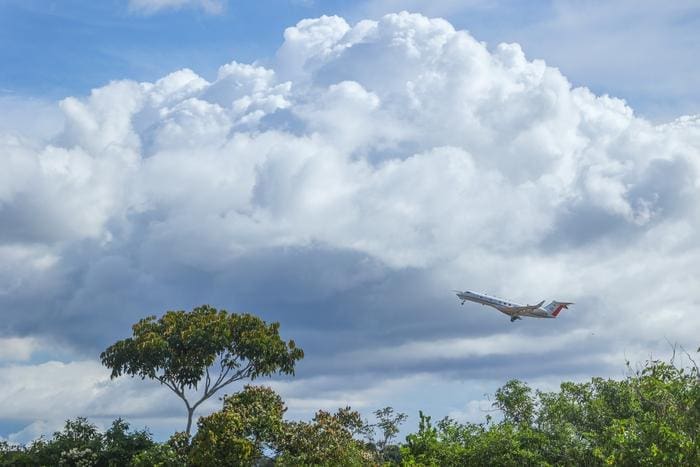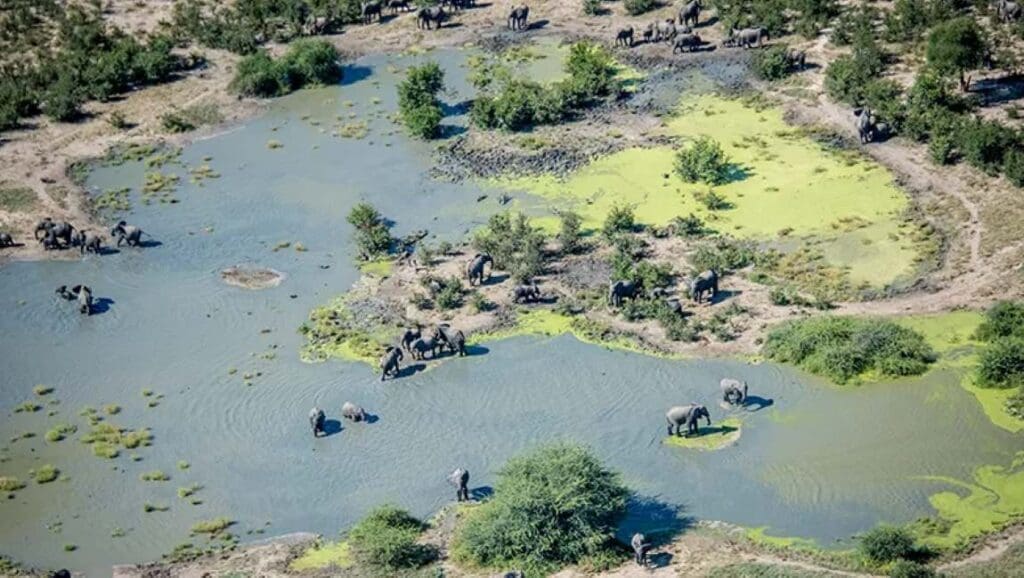The Amazon rainforest plays a crucial role in global climate regulation, not only through its carbon storage capabilities but also as a source of natural emissions that drive atmospheric processes.
Two recent studies conducted by an international research team, including scientists from Goethe University Frankfurt, the Max Planck Institute for Chemistry, the University of Helsinki, and the Leibniz Institute for Tropospheric Research, together with Brazilian partner institutions, reveal the unexpected role of isoprene, a volatile organic compound, in cloud formation over the Amazon and beyond.
The findings are now published as the Nature cover story.
Isoprene, a molecule emitted by plants, is responsible for a significant portion of the organic compounds released into the atmosphere annually.
“The Amazon rainforest alone is responsible for over a quarter of these emissions,” says Professor Joachim Curtius from Goethe University Frankfurt. Until now, it was thought that isoprene in the Amazon basin degrades quickly in the lower atmosphere due to reactions with hydroxyl radicals, making it unlikely to reach higher atmospheric layers. However, new data show that thunderstorms over the Amazon at night act as transport mechanisms, lifting isoprene to altitudes of 8 to 15 kilometers.

At these high altitudes, where temperatures are extremely low, isoprene undergoes chemical transformations when exposed to nitrogen oxides generated by lightning during the thunderstorm. These reactions result in the formation of aerosol particles, which serve as condensation nuclei for cloud formation.
“We were able to shed light on these processes with the help of research flights that started two hours before sunrise and then continued through the day,” explains Professor Jos Lelieveld, director at the Max Planck Institute for Chemistry and head of the CAFE-Brazil research project. “We were able to detect considerable amounts of isoprene in the air flowing out of the thunderstorms at high altitude, from which new aerosol particles rapidly formed after several chemical reactions.”
To simulate these atmospheric conditions, the research team used the aerosol and cloud experiment chamber at CERN as part of the CLOUD consortium. According to Dr. Xu-Cheng He, who led the isoprene experiments, even trace amounts of sulfuric acid and iodine oxoacids present in the atmosphere can accelerate aerosol particle formation by up to 100 times.
These aerosol particles can travel great distances, potentially influencing cloud formation over the oceans. As clouds, depending on their type and height, both shield solar radiation and prevent heat from being radiated into space, they play a crucial role in the climate. The researchers, therefore, expect that their findings will contribute to improving climate models.
The research also highlights the dual threat posed by Amazon deforestation. Beyond carbon dioxide emissions, deforestation disrupts the water cycle and reduces isoprene emissions, further intensifying climate change.
“On the one hand, greenhouse gases are released because the forest no longer stores carbon dioxide,” notes Curtius. “On the other hand, clearing the forest impacts both the water cycle and isoprene emissions, further propelling climate change.”
Journal References:
1. Curtius, J., Heinritzi, M., Beck, L.J. et al. ‘Isoprene nitrates drive new particle formation in Amazon’s upper troposphere’, Nature 636, 124–130 (2024). DOI: 10.1038/s41586-024-08192-4
2. Shen, J., Russell, D.M., DeVivo, J. et al. ‘New particle formation from isoprene under upper-tropospheric conditions’, Nature 636, 115–123 (2024). DOI: 10.1038/s41586-024-08196-0
Article Source:
Press Release/Material by Goethe University Frankfurt
Featured image: Clouds over the Amazon basin, taken during a research flight. Credit: Philip Holzbeck | MPI for Chemistry, Germany




